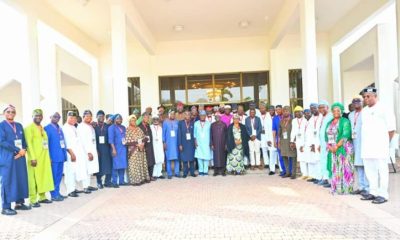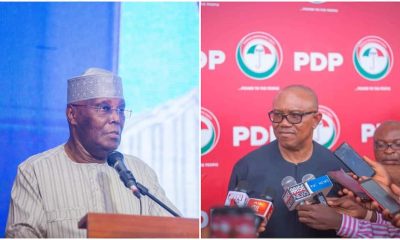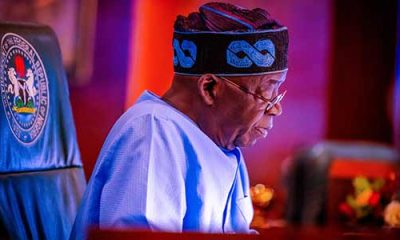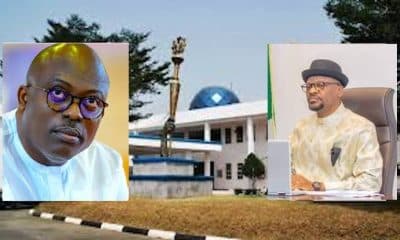Nigeria News
We Are Okay With ₦60,000 Minimum Wage – Organized Private Sector Declares

The organized private sector has accepted the Federal Government’s proposal for a new minimum wage of ₦60,000.
The Director-General of the Manufacturing Association of Nigeria, Ajayi Kadri, confirmed this development during a recent interview, stressing that the private sector is constrained by microeconomic, infrastructure and security challenges and that anything more than the federal government’s proposed minimum wage is not feasible for the sector at the moment.
Ajayi emphasized that the ongoing negotiations between the government, private sector, and labour primarily focus on establishing a minimum wage rather than a living wage, representing the lowest possible payment for any worker in the country.
He further highlighted the significant economic challenges faced by both labour and private businesses, making it exceedingly difficult to meet the wage demands of labour unions.
“To start with, this is a very difficult time for anyone to negotiate minimum wage. From the perspective of government, labour and organized private sector, we operate in an environment where there is general acceptance of the fact that the macroeconomics are not right, even the global economy is experiencing a lot of shakeups and the aftermath of government necessary reforms.
“From the beginning of the negotiations of the minimum wage, it’s evident to the tripartite— that is, the government, labour, and organized private sector— that we are going to operate in a difficult terrain.
“Incidentally, the organized private sector and government have offered ₦60,000 as the minimum wage and I think it is very important for us to understand that what we are talking about is the minimum wage. That is what some people have called the walk-in wage. That is the amount we will pay the least workers in the country. It is the minimum wage we are negotiating, not a living wage,” Ajayi while on a Channels Television programme on Saturday.
Ajayi revealed that significant obstacles are being faced by both the government and the private sector in meeting the proposed N419,000 living wage demand.
He pointed out that the private sector, particularly, is struggling with economic difficulties and inflation, making it unfeasible to meet such a high wage.
Furthermore, he emphasized that the current period is not conducive for organized labour to engage in discussions regarding a new minimum wage. Rather, they should work together with other parties to bolster the economy.
“All of us in the tripartite— the government, the labour, and the private sector — we all knew that we were operating in a very difficult environment. The government itself realized that it had limited capacity to pay. The private sector is constrained by microeconomic, infrastructure and security challenges. So, we are also constrained to pay.
“Labour, on its part, is under intense pressure from its constituencies to ask for a higher wage because inflation has hit the roof and the operating environment is tough.
“Throughout the negotiation process, we made it known that this is not the best time to negotiate minimum wage. This is the time for us to agree, the crew behind the government, and grow the economy in such that we will bake a bigger cake, and then we’ll be able to share,” the director general added.
He urged the organized labour to rethink their choice of initiating a nationwide strike, emphasizing that leaving negotiations and resorting to strike action would not be beneficial.
He emphasized the importance of organized labour reconsidering their decision to go on a nationwide strike, highlighting that rejecting the N60,000 offer from the government and private sector was regrettable.
“We cannot afford to cripple the economy when all we needed to do was continue to build it. I think President Tinubu was very clear when he emerged as president that these are not going to be easy times, and I think we needed to tighten our belts to deliver on economy that we know has been seriously battered,” Ajayi-Kadir said.
He added: “Of course, the government on its own side has to demonstrate leadership, sensitivity and sense and sense of mind as well as the sense of occasion of the period that we are in. So, government expenditure, government choices of what needs to be done, how much to be spent, the cost of governance itself, all of it has to come to the table.
“I think what labour is actually worried about is that they appear to be the ones on the brunt of it but we needed to be able to engage, walking out on the process and declaring a strike, I do not think that that is what is going to solve this issue.”
Naija News reported earlier that the labour unions, on Friday, announced a nationwide strike without a specified end date due to the Federal Government’s rejection of increasing the proposed minimum wage of N60,000.
They asserted that the strike was initiated after the previous appeal to the Federal Government to finalize all discussions regarding a new minimum wage by the end of May had expired.












